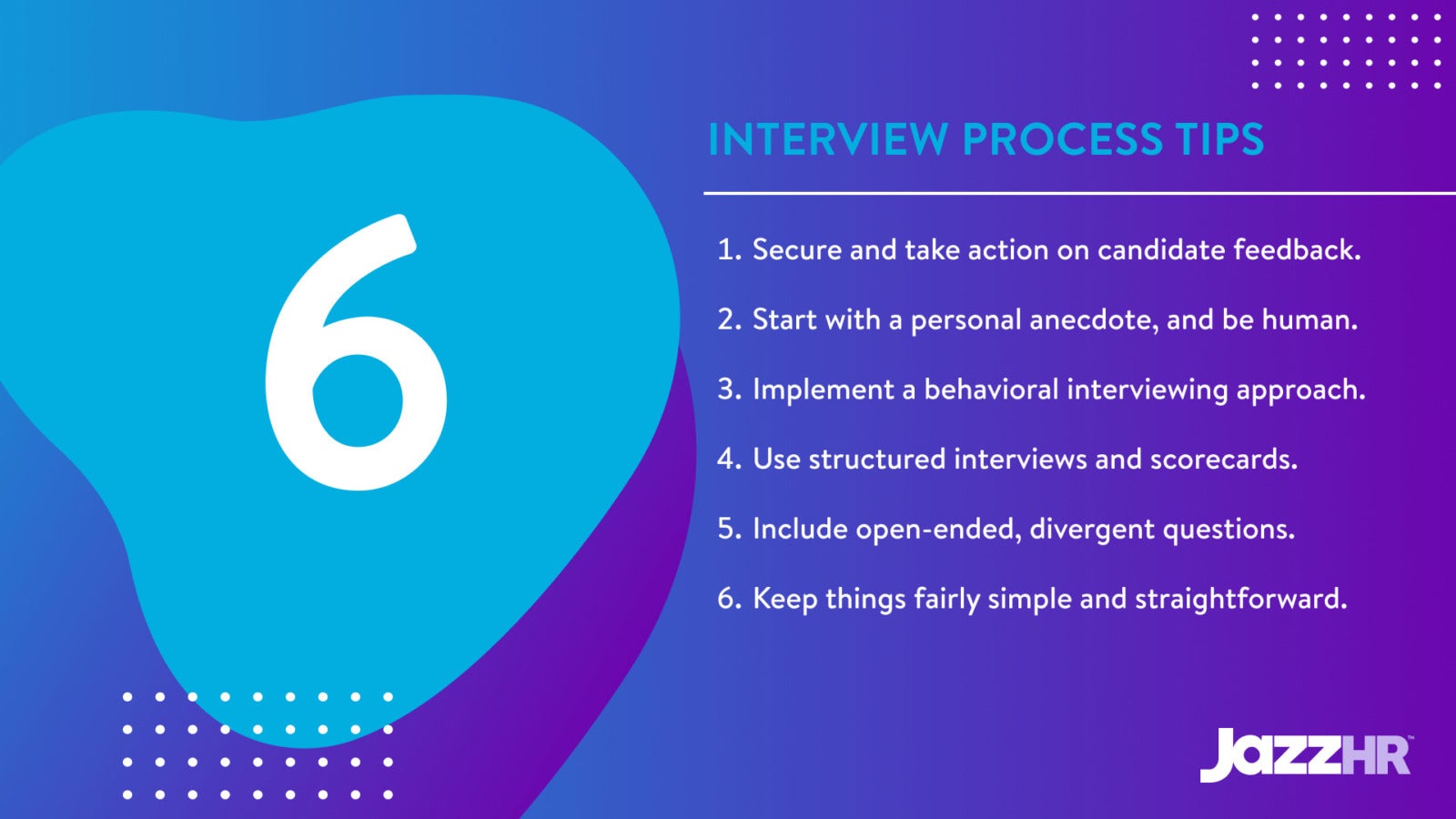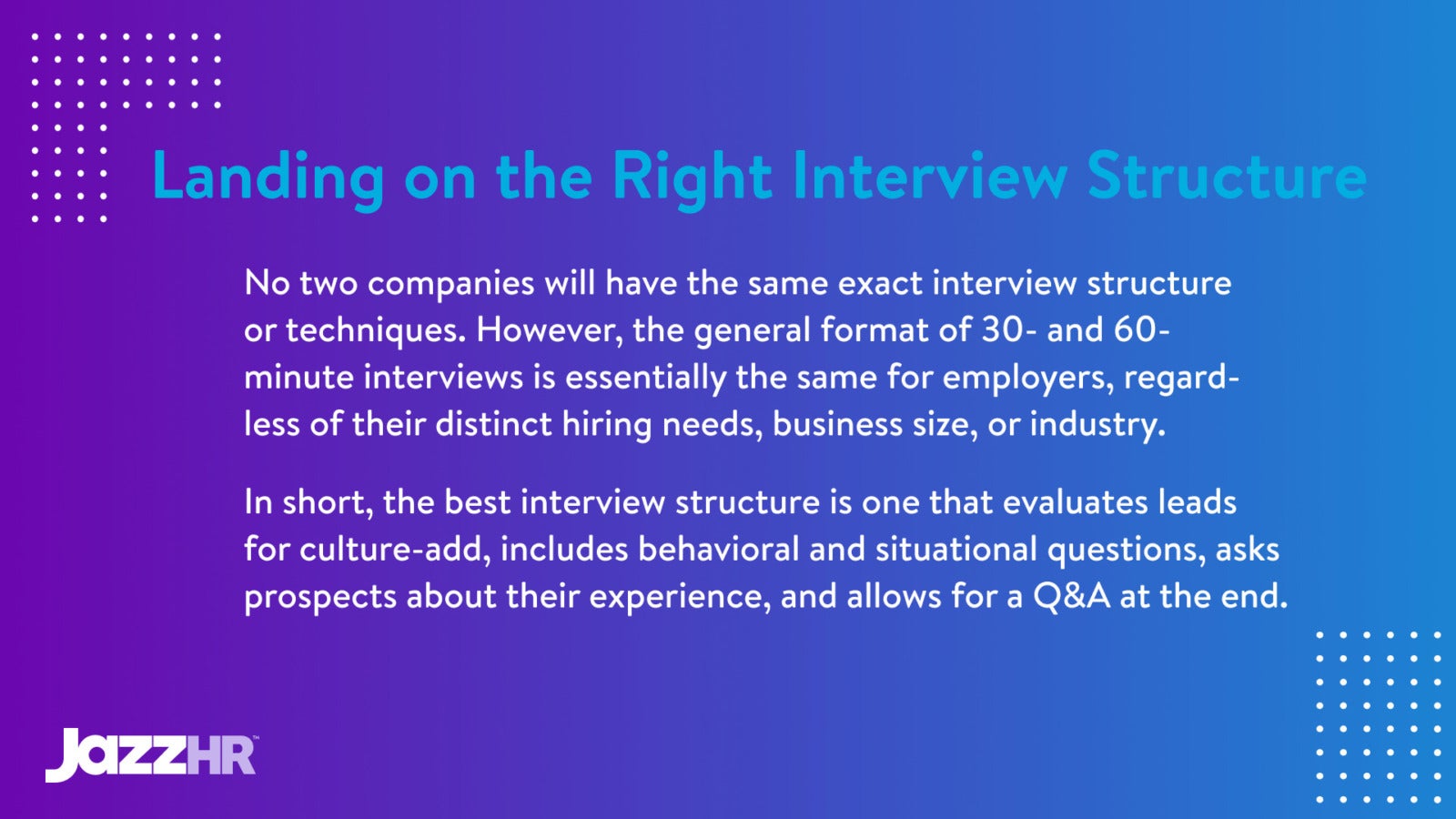As a recruiter or a hiring manager, you need to have a plan for how you’re going to use your interview time.
Structured interviews are more effective than unstructured ones. Plus, they allow you to properly measure candidates against each other in an objective way so that each person receives an equal opportunity.
Taking a systematic approach to how much time you spend on each section of the interview prevents you from getting side-tracked and forces you to prioritize the most important questions.
A 60-minute interview structure example
If you’ve got an hour-long interview ahead of you, it’s important to know how to wisely spend that time. So, to offer some inspiration, here’s a sample interview structure you could implement.
Culture-add assessment: 10 minutes
This step in an interview involves assessing a candidate’s ability to add to your culture. (Notice we didn’t say “culture fit,” which isn’t the ideal angle to take with this portion of the interview).
- Put plainly, you want to know if their personal values mesh with the business’s and if their work style aligns with the way your organizations typically operates.
Questions like “What kind of environment do you work best in?” and “What kind of leadership style gets the most out of you?” should elicit thoughtful responses.
Culture-add is very important to the health of your organization, so it’s well worth spending the time to make sure you get it right.
Behavioral questions: 20 minutes
Behavioral and situational questions encourage longer answers and help you to understand more about candidates, and how they respond to different scenarios.
- You want to identify situations that involve learning from mistakes or seeking out new information, and then to ask questions that get at these ideas.
One good example is “Tell me about a time when you had difficulty with a project. What went wrong? How did you resolve it?” You want to find out how the candidate dealt with difficult situations in the past, as this is a reasonable predictor of how they might deal with them in the future.
You can also ask ethical questions in the interview, such as “what would you do if you were asked by your boss to conceal important information?”
Behavioral questions are all about delving deeper into candidates’ character, work style, and ethics. You can tell a lot about a person through their answers and, while some skills can be learned, their essential character traits are unlikely to change.
Skills and company knowledge: 20 minutes
You want to find out how a candidate will perform in the role, so you should spend this time asking them more job-specific questions. What can they contribute to the position? How do they feel they can they further the company’s mission and goals?
A well-prepared candidate will have done in-depth research on your organization. Asking questions that test their knowledge of your company’s products, services, and competitors will help you see how committed they are to really getting on board.
Company overview and candidates questions: 10 minutes
While you are interviewing the candidate, they are also assessing you and if your organization is a place they’d like to work. No matter how good they are, new hires will struggle if they are at odds with the values, mission, and environment they’ll be immersed in.
- Being clear and giving a solid company overview will help you avoid this.
So, too, will taking the time to answer any questions the candidate might have. These can be revealing in themselves, while also arming candidates with the knowledge they need to make the right decision should you offer them the role.
The pros of an systematic interview structure
You can’t conduct good interviews without having a plan and an effective structure in place.
Organizing your time wisely and making sure you dedicate the right amount to the most appropriate topics will help you identify the best candidates so that you ultimately make great hires.







